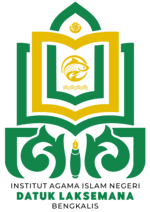Meningkatkan Kemampuan Membaca Report Text Melalui Game Pada Siswa Kelas IX C MtsN 1 Bengkalis Tahun Ajaran 2018/2019
DOI:
https://doi.org/10.56633/jkp.v15i1.65Abstract
Abstract The study aims to find out the students ability in reading report texts by using games (kokora and puzzle) of the ninth grade students class C at MTsN 1 Bengkalis in the academic year 2018/2019. The research was conducted of the ninth grade students class C at MTsN 1 Bengkalis. There were 36 students. This research is classroom action research through for phases; planning, implementation, observation, and reflection. Learning strategy used games (kokora and puzzle). In data collection technique used observation and test. After the implementation of the games (kokora and puzzle), the improvement can be seen from the average value of the class has risen from the result of the first cycle class average rose to 77,88 and the second cycle increased to 89,13. In the first cycle the percentage of the overall completeness of students increased to 69,4% or 25 out of 36 students, then on the second cycle increased to 91,6% or 33 out of 36 students. Based on these descriptions, it can be concluded that an increase learning achievement of students in reading report text begin cycle I and cycle II. Then the use strategy games (kokora and puzzle) can improve learning outcome in reading report text of the ninth grade students class IX C at MTsN 1 Bengkalis.References
Ahmadi Abu. 2005. Psikologi Perkembangan. Jakarta: Asdi Mahasatya Campbell. 2004. Multiple Intelegence Metode Terbaru Melesatkan Kecerdasan. Terjemahan oleh Tim Inisiasi Depok: Inisiasi Press. Dimyati dan Mudjiono. 1991. Belajar dan Pembelajaran. Jakarta: Aneka Cipta Faturahman dan Sutikno. 2007. Strategi Belajar Mengajar Hamalik. 2009. Proses Belajar Mengajar. Bandung: Bumi Aksara Ismail, Andang. 2006. Education Games. Yogyakarta : Pilar Media M. Echols, Jhon dan Sadily, Hasan. 1996. Kamus Inggris Indonesia. Jakarta: Gramedia. Nurhadi, 2004. Bagaimana Meningkatkan Kemampuan Membaca, Bandung: Sinar Baru Algesindo. Rahim. F. 2007. Pengajaran Membaca Di sekolah Dasar. Jakarta: Bumi Aksara.
Rusman. 2013. Model-model Pembelajaran. Bandung: P.T Raja Grapindo Persada. Sardiman. 2008. Interaksi dan Motivasi Belajar Mengajar. Jakarta: P.T. Raja Grafindo Persada. Sholeh, M. Badrush. 2015. Headline English for SMP – MTs. P.T Sewu Bumi Asri Merah Ayu. Bandung. Silberman. 2009. Active Learning 101 Cara Belajar Siswa Aktif. Bandung Somadaya. 2011. Strategi dan Teknik Pembelajaran Membaca. Yogyakarta: Graha Ilmu. Suharsimi. 2008. Penelitian Tindakan Kelas, Jakarta: Universitas Terbuka. Supriyono. 2013. Cooperative Learning. Surabaya: Pustaka Belajar. Susanto. 2014. Teori Belajar dan Pembelajaran di Sekolah Dasar, Jakarta: Kencana. Suyatno. 2009. Menjelajah Pembelajaran Inovatif. Surabaya. Mas Media Buana Pustaka. Syafi’i. 1999. Pengajaran Membaca Terpadu. Bahan Kursus Pendalaman Materi Guru Inti PKG Bahasa dan Sastra Indonesia. Malang: IKIP Tampubolon, D.F. 1987. Kemampuan Membaca.Teknik Membaca Efektif dan Efisien. Bandung : Angkasa. Tarigan, Henry Guntur. 1984. Membaca Sebagai Keterampilan Berbahasa. Bandung: Angkasa. Wachidah, Siti. dkk. Bahasa Inggris Think Globally Act Locally. Edisi Revisi. Jawa Barat: C.V Arya Duta. Wina. 2008. Kurikulum dan Pembelajaran. Jakarta: Kencana. Winardi, BBM. Andreas. 2005. Let’s Talk. Bandung: Pakar Raya.
Downloads
Published
Issue
Section
License
Authors who publish with this journal agree to the following terms:
- Authors retain copyright and grant the journal right of first publication with the work simultaneously licensed under a Creative Commons Attribution-ShareAlike 4.0 International License. that allows others to share the work with an acknowledgement of the work's authorship and initial publication in this journal.
- Authors are able to enter into separate, additional contractual arrangements for the non-exclusive distribution of the journal's published version of the work (e.g., post it to an institutional repository or publish it in a book), with an acknowledgement of its initial publication in this journal.
- Authors are permitted and encouraged to post their work online (e.g., in institutional repositories or on their website) prior to and during the submission process, as it can lead to productive exchanges, as well as earlier and greater citation of published work (See The Effect of Open Access).






